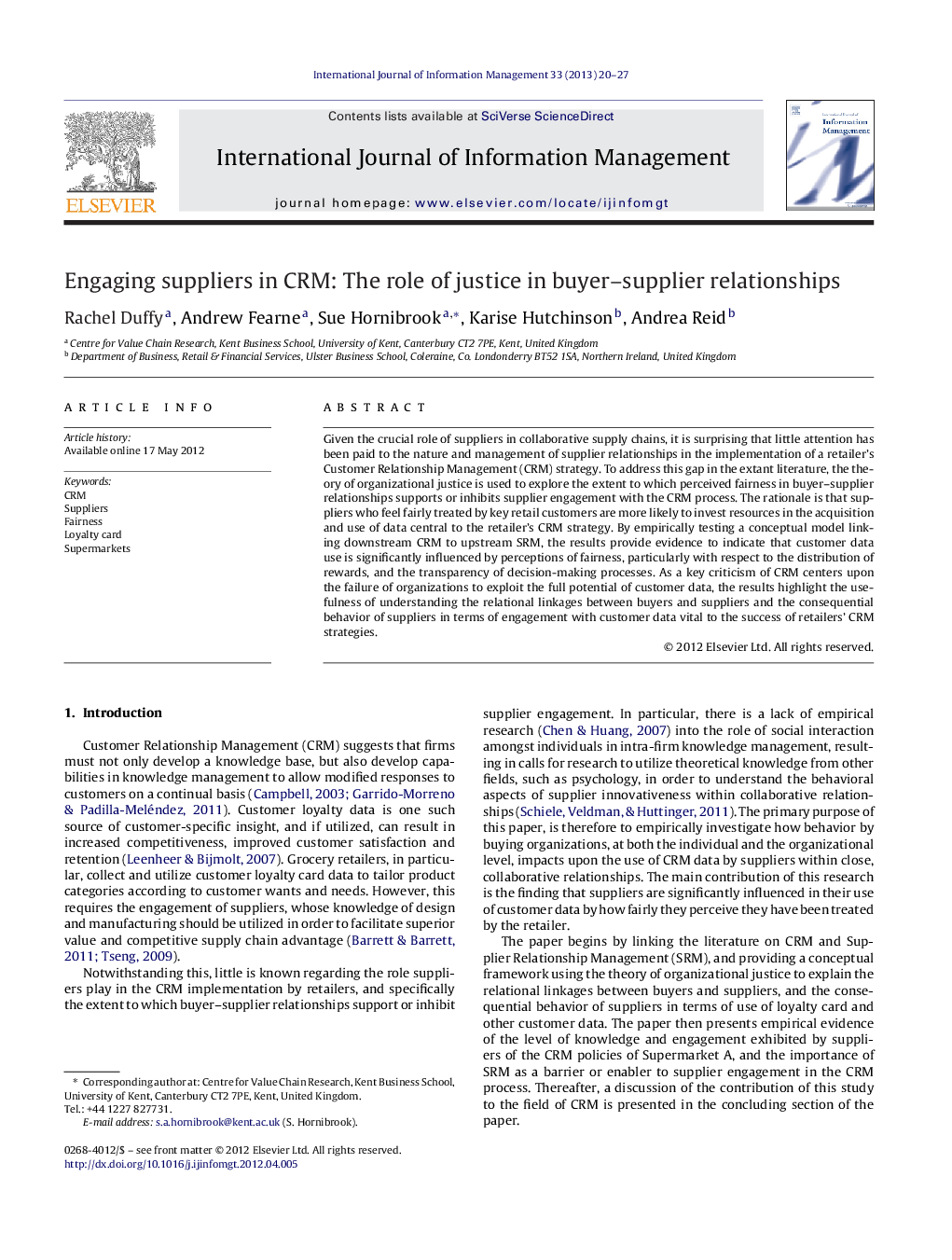| Article ID | Journal | Published Year | Pages | File Type |
|---|---|---|---|---|
| 1025867 | International Journal of Information Management | 2013 | 8 Pages |
Given the crucial role of suppliers in collaborative supply chains, it is surprising that little attention has been paid to the nature and management of supplier relationships in the implementation of a retailer's Customer Relationship Management (CRM) strategy. To address this gap in the extant literature, the theory of organizational justice is used to explore the extent to which perceived fairness in buyer–supplier relationships supports or inhibits supplier engagement with the CRM process. The rationale is that suppliers who feel fairly treated by key retail customers are more likely to invest resources in the acquisition and use of data central to the retailer's CRM strategy. By empirically testing a conceptual model linking downstream CRM to upstream SRM, the results provide evidence to indicate that customer data use is significantly influenced by perceptions of fairness, particularly with respect to the distribution of rewards, and the transparency of decision-making processes. As a key criticism of CRM centers upon the failure of organizations to exploit the full potential of customer data, the results highlight the usefulness of understanding the relational linkages between buyers and suppliers and the consequential behavior of suppliers in terms of engagement with customer data vital to the success of retailers’ CRM strategies.
► We explore the role that suppliers play in CRM implementation. ► We empirically test a conceptual model of fairness linking CRM to upstream SRM. ► Suppliers use of customer data is influenced by distribution of rewards. ► Suppliers use of customer data is influenced by decision-making processes. ► Perceptions of fairness by suppliers influences engagement with customer CRM strategy.
